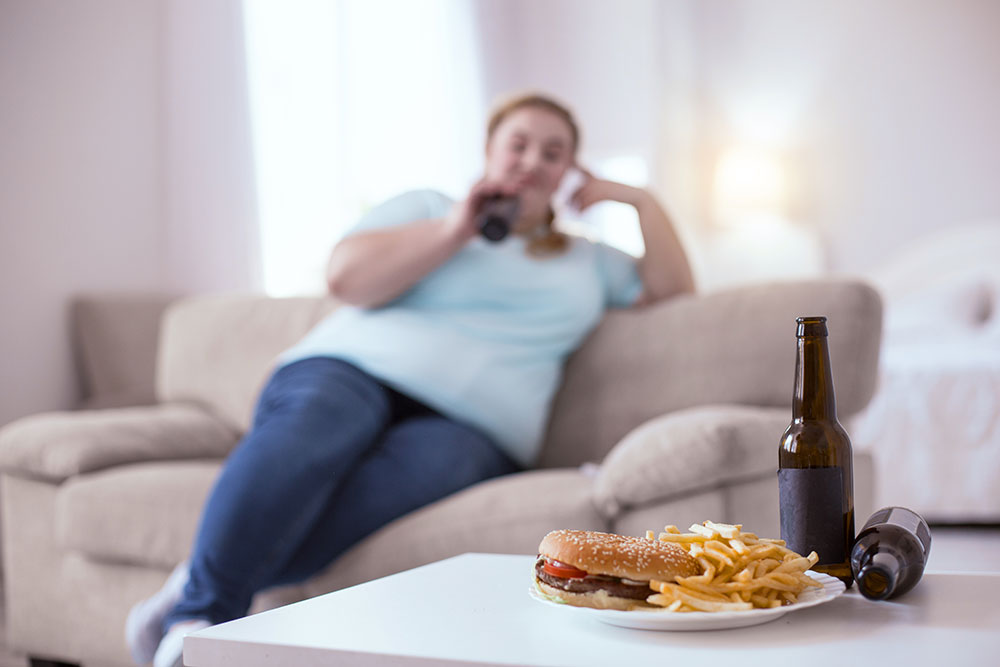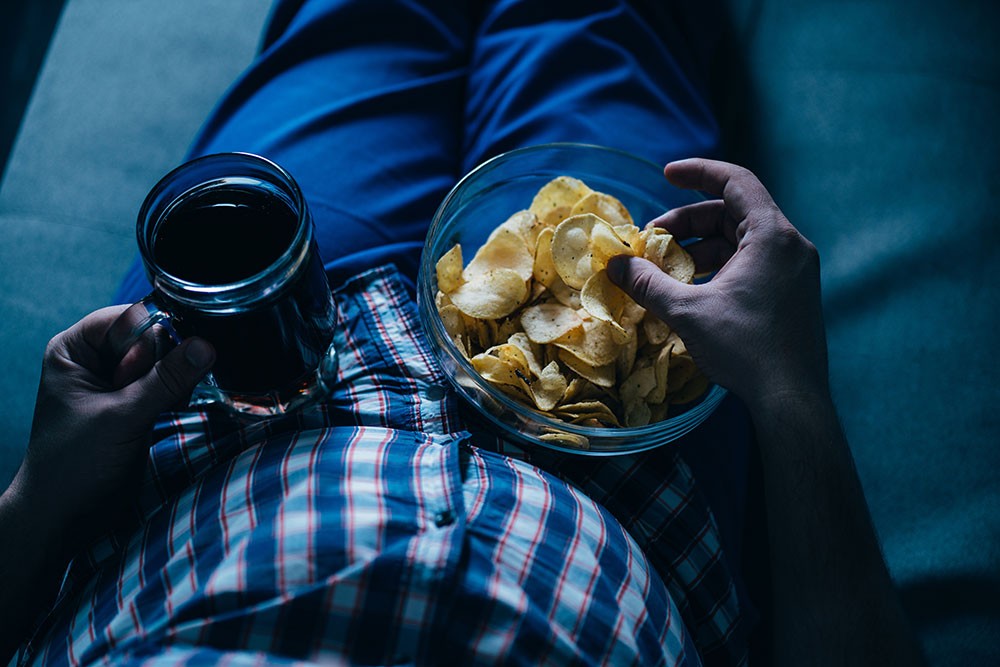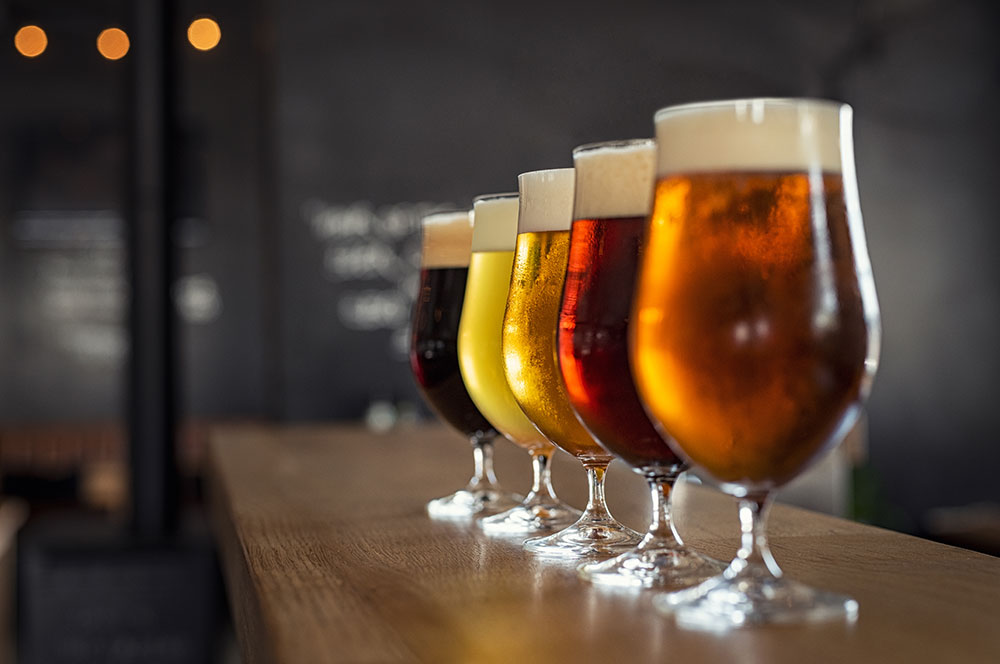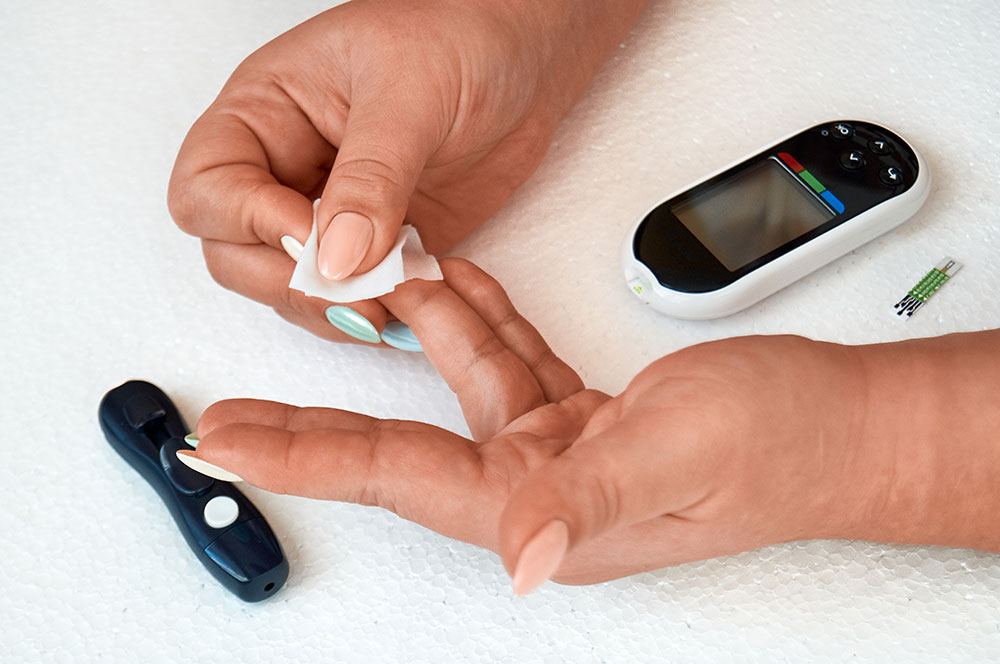Last updated on November 16th, 2023
Diabetes occurs commonly marked by the presence of uncontrolled levels of blood sugar. Alcohol can produce extensive swings in these levels and may result in both low and high blood glucose readings. If any diabetic person wishes to drink alcohol, some approaches can be used to drink more safely, like keeping a regular check on the blood glucose levels. Heavy drinking is one of the major risk factors for developing type 2 diabetes. Read further to know does alcohol increase the risk of diabetes or can drinking alcohol cause high blood sugar.
Diabetes is one of the most common lifestyle problems affecting millions of people worldwide. Alcohol use is also very common. Can a diabetic patient drink alcohol? People with diabetes can have the craving to drink, just like any other person. Yet, heavy drinking can have an impact on normal blood sugar levels, thus one must be careful when drinking. If a person is diagnosed with diabetes, drinking alcohol can cause his or her blood sugar to either rise or fall. In addition, alcohol contains a lot of calories. If any person wants to drink, he or she should do it occasionally and only when their levels are well-controlled. Read more to learn about the effects of alcohol on diabetes.

What do You Need to Know About Diabetes and Drinking Alcohol?
People keep on thinking about their calories and carbs repeatedly, and adding liquor (alcohol) to the mix turns to be more complicated.
Why do people drink alcohol? They do so due to some reasons and these can be: to be more sociable, to tackle daily challenges, or just for the fun sake because a drink gives them pleasure. However, while alcohol can make individuals feel more relaxed, drinking can turn out to be a complex game for individuals living with type 2 diabetes. And, if any diabetic wishes to drink with his or her family or friends, let’s discuss how it can be done safely.
To begin with, alcohol is just like a drug and can be extremely addictive. If a person is not under this habit now, there’s no reason to begin. Avoiding drinking is the healthiest choice any person can make whether he or she is diabetic or not. Drinking more than the recommended amounts is quite unhealthy and has been associated with complications in the heart, brain, pancreas, liver, and immune system. Also, heavy drinking is directly related to the incidence of several forms of cancer, as per the reports by National Institute on Alcohol Abuse and Alcoholism. Other health issues including accidental injuries (car accidents, or falls), fetal problems, and domestic violence have been interlinked with the use of excessive alcohol according to the Centers for Disease Control and Prevention.
Before proceeding further, it’s important to understand: how does drinking affects diabetes?

What Happens When Diabetics Drink Alcohol?
The liver produces glucose when there is a drop in the blood sugar levels, however also processes any alcohol existing in the body. Let’s put down more distinctively, the liver breaks down the alcohol. The liver also manufactures glucose when the blood glucose levels become low. The liver does so by converting the stored glycogen into glucose and discharging that glucose into the bloodstream. When a person drinks, his or her liver gets occupied in processing the alcohol and faces a tough time while producing glucose.
This whole process puts diabetics at high risk of low blood glucose when they consume alcohol. And if the person is taking insulin, he or she fails to produce enough glucose for the amount of insulin he or she has taken, resulting in a dangerous hypoglycemic episode. This is particularly true for people with type 1 diabetes; however, type 2 diabetics are still at risk for low blood glucose levels when they drink heavily. This is the reason why does alcohol makes your blood sugar drop.
Treating Hypoglycemia Promptly
Alcohol has an effect on blood sugar for up to 12 hours. Thus, it is important to test the blood sugar levels before bedtime. If it lies within the range of 100-140 mg/dL, you might be feeling well. If it goes below this range, it’s advisable to have a snack to raise it. Snacks may include half vegetable sandwiches; cereal with milk, yogurt, vegetable-fruit smoothie, or four slices of apple with peanut butter. It is preferred to have a meal or snack that has carbs when a person drinks.
Why Does Alcohol Reduce Blood Sugar?
The effects of alcohol on diabetic patients can be:
- While the moderate quantity of alcohol results in blood glucose spiking, and when it is taken in excess, a reduction in glucose levels occurs. At times, the reduction drop to risky levels.
- Alcohol acts as an appetite stimulant, triggers a person to overeat, and severely affects blood sugar control.
- Alcohol may increase triglyceride levels, thus increasing blood pressure.
- Drinks often are calorie-loaded, which creates difficulty in losing excess weight.
- Alcohol tends to interfere with the positive effects of anti-diabetic medicines or insulin.
- It can also impact a person’s decision-making power or willpower, causing the person to make poor food choices.
- Alcohol may result in ill-effects such as nausea, flushing, indistinct speech, and an increased heart rate.
All Must Be Curious to Know; What Does a Alcohol Drink Contain?
Now, that’s a tricky subject. A big difference lies in what the person is drinking and how much of it he or she chooses to drink. Like many other queries about diabetes, these questions also don’t carry straightforward answers. CDC states the definition of moderate drinking as two drinks or less for a day (for males), or one drink or less per day (for females). Also, it is recommended by the US Dietary Guidelines Advisory Committee that one drink is sufficient for a day (both for males and females).
CDC classifies a drink as one drink consisting of 14 grams (0.6 oz, or ounces) of pure alcohol. And this usually is equivalent to 12 oz of beer, 5 oz of wine, 8 oz of malt liquor, or 1.5 oz of hard liquor or spirits like whiskey, rum, or vodka.
Types of Drinks
- Avoid low-sugar beers and cider, known by the name diabetic drinks. They might be containing a low amount of sugar, but are loaded with alcohol.
- Do not drink low-alcohol wines, as they contain more sugar than normal drinks.
- Refrain from drinks such as sweet wines and liqueurs as they are full of sugar content.
- Have sugar-free mixers with any spirits.
What Makes a Person Drink?
Does alcohol lower blood sugar in diabetics? Several factors such as food, diabetes drugs, and exercise are responsible for adding complexity to the condition. By and large, high alcohol consumption leads to low blood sugars whether the patient is having type 1 or type 2 diabetes.
And several reasons account for this including:
- Anti-diabetic medications: Insulin and sulfonylurea drugs like Glimepiride or Glyburide (medications that lower blood sugar levels) lower down the blood glucose when alcohol is taken with them. Insulin and alcoholic drinks function similarly no matter it’s type 1 or type 2 diabetes. If a person is on Metformin, be cautious about some signs while the patient is having alcohol: excessive tiredness, muscle pain, slow heart rate, breathing difficulty, or dark urine. Heavy drinking while taking Metformin increases the risk of a rare, hazardous condition, named lactic acidosis. In case a person notices any of the above ill effects, it’s always better to get instant medical help.
- Food: Drinking alcohol while fasting leads to hypoglycemia (low blood sugar). However, having food while drinking can also lead to an increase in blood glucose levels, particularly if the person eats more than normal or if the person is having unhealthy foods while drinking.
- Carb content of drinks: Does beer raise sugar levels? The answer is yes. Sweet wines and beer are loaded with carbohydrates. They are found to increase the blood glucose level regardless of the alcohol content. In contrast, rapidly trimming the consumption of these drinks, or hastily switching over to the dry wine or spirits, carries a greater risk of hypoglycemia.
- Exercise: If the person is physically active either prior to or after drinking, it may lead to an excessive fall in the blood sugars and serious hypoglycemia.
Tips to Safely Consume Alcohol in Diabetes
Alcoholic drinks are the same as desserts; they contain much-added sugar; so a person should be mindful of what types of drinks he or she is having. It’s a good idea not to choose alcohol mixed with punches or soft drinks. Beer and sweet wines are rich in carbohydrates and calories.
- So, using a continuous glucose monitor (CGM) is a good option for any diabetic. While you’re going for a drink, you can come back and regularly monitor the blood glucose and see if it drops rapidly.
- Avoid drinking on an empty stomach. It is a must to have a good meal before or during. But one must be mindful of the carb count in the meal he or she is taking with the alcohol.
- Alcohol and exercise in combination can make the blood sugar numbers fall. Avoid drinking while exercising, or dancing. A considerable reduction in blood sugar levels is seen during physical activity. Also, if the liver fails to maintain glucose production, the risk of hypoglycemia becomes even higher.
- Keeping all the essentials handy, similar to a hypoglycemia kit. Carry a blood glucose testing kit along to test repeatedly. One must have extra test strips, lancets, alcohol swabs, along with some fast-acting forms of glucose (glucagon), just in case, the blood glucose levels don’t come up with food or glucose.
Every person needs to avoid taking alcohol to the point of not being capable of protecting themselves. For type 2 diabetics, this involves guarding against hypoglycemia risks.
Summary
The take-away is, if a person is going for a drink, be smart about it. Begin with a blood glucose level that’s a healthy, in-range level, small sips, no large gulps, plus avoid excessive drinking. A person’s body, brain, and his or her diabetes condition all will be at a streamline once the diabetic person understands how to drink safely and healthily. Alcohol intake can aggravate diabetes-associated complications, such as disturbed fat metabolism, eye damage, diabetic foot, or nerve damage.
Drinking is individualized and no general rule exists about how to have it safely when a person is a diabetic. It’s always better to discuss with the concerned doctor about drinking habits so that the doctor can give tips and tricks for how to drink within safe limits and what to drink that works for the person.
Also read: Dapagliflozin metformin side effects
FAQs:
What are the safety tips one must exercise while having drinks?
Here are some of the things one should watch out for:
- Heavy drinking can cause raised blood pressure in the case of type 2 diabetics.
- Alcohol can also worsen diabetic complication, neuropathy (nerve damage).
- It leads to dehydration of the whole body, causing sleep troubles.
- Also, excess drinking is linked to certain cancers and heart problems.
How does alcohol influence my blood glucose control?
Different drinks will have varying effects on blood glucose levels. In addition, it depends on the amount a person drinks. A single drink (a medium bottle of beer, or a medium wine glass) might not affect the overall blood sugar.
How do I need to be careful when it comes to alcohol and diabetes type 2?
Avoid the intake of alcohol while the stomach is empty, as this will rapidly augment the amount of alcohol in the person’s bloodstream. Also, it’s a good idea to avoid binge-drinking or sustained drinking, and avoid substituting alcohol for meals. All of this may enhance the risk of low blood sugar or hypoglycemia.
References:
- https://www.diabetes.org.uk/guide-to-diabetes/enjoy-food/what-to-drink-with-diabetes/alcohol-and-diabetes
- https://www.diabetes.co.uk/diabetes-and-alcohol.html
- https://www.hopkinsmedicine.org/gim/faculty-resources/core_resources/Patient%20Handouts/Handouts_May_2012/Mixing%20Alcohol%20with%20your%20Diabetes.pdf
Last Updated on by Dr. Damanjit Duggal
Disclaimer
This site provides educational content; however, it is not a substitute for professional medical guidance. Readers should consult their healthcare professional for personalised guidance. We work hard to provide accurate and helpful information. Your well-being is important to us, and we value your feedback. To learn more, visit our editorial policy page for details on our content guidelines and the content creation process.

 English
English















